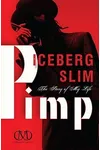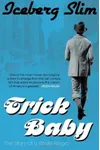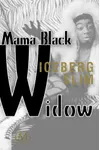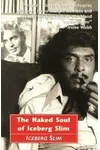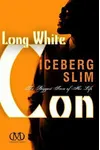Picture a Chicago street hustler turned literary legend, weaving raw, unflinching tales of urban life—meet Iceberg Slim! Born Robert Beck in 1918, this former pimp transformed his gritty experiences into seven groundbreaking novels, most notably his memoir, Pimp: The Story of My Life. With a voice as cool as his nickname, Slim’s work captivated millions and left an indelible mark on African American literature.
From the shadowy corners of the underworld to the printed page, Slim’s journey is a tale of reinvention. His vivid storytelling, laced with street slang and stark honesty, brought the realities of Black urban life to readers worldwide, influencing everyone from rappers to filmmakers. Let’s dive into the life and legacy of this literary renegade!
The Making of Iceberg Slim
Robert Lee Maupin, later known as Iceberg Slim, was born in Chicago and spent his early years in Milwaukee and Rockford, Illinois. Raised by his hardworking mother, who ran a beauty shop, young Robert enjoyed a middle-class upbringing despite the era’s challenges. But a troubled relationship with his mother’s new partner and exposure to street culture pulled him into a darker world. By 18, Slim was pimping, a career that spanned over two decades and earned him his icy moniker for his calm, ruthless demeanor.
Prison stints, including a transformative period in solitary confinement, pushed Slim to rethink his path. Inspired by authors like Oscar Wilde and his own vivid imagination, he began ‘writing on the ceiling’—crafting stories in his mind. After retiring from pimping at 42, he moved to Los Angeles, adopted the surname Beck, and set out to share his story with the world.
Iceberg Slim’s Unforgettable Stories
Slim’s debut, Pimp: The Story of My Life (1967), is a raw, unapologetic memoir that sold nearly two million copies by 1973. Written in vivid street vernacular, it chronicles his life as a pimp, blending brutal honesty with sharp social commentary. The book’s success, especially among Black readers, made Slim a literary icon and a voice for the marginalized.
His novels, like Trick Baby (1967), follow a light-skinned con man navigating racial divides, while Mama Black Widow (1969) sensitively portrays a gay, cross-dressing Black man’s struggles. Slim’s later works, including The Naked Soul of Iceberg Slim (1971) and Long White Con (1977), mix autobiography, fiction, and political essays, critiquing systemic racism and the justice system. His style—gritty, poetic, and unflinchingly real—set the stage for the African American street novel genre.
Slim’s storytelling wasn’t just about shock value. His works, often compared to a ‘Shakespeare from the ghetto,’ offered a lens into the complexities of urban life, challenging stereotypes and giving voice to the voiceless. His influence extended beyond books, inspiring a 1976 spoken-word album, Reflections, praised for its narrative depth.
Why Iceberg Slim Matters
Iceberg Slim’s impact reverberates through modern culture. His raw depictions of street life laid the groundwork for blaxploitation films and gangsta rap, influencing artists like Ice-T, Ice Cube, and Jay-Z, who drew inspiration from his unfiltered voice. Scholars now study Slim’s work in cultural studies, recognizing him as a pioneer of Black pulp fiction and a literary godfather of hip-hop.
Despite exploitation by publishers that left him penniless, Slim’s legacy endures in prisons, college campuses, and urban communities. His books, translated into multiple languages, remain bestsellers, offering timeless insights into race, power, and redemption. Slim’s life, capped by his death in 1992 amid the Los Angeles riots, mirrors the turbulent history he chronicled.
About Iceberg Slim
- Born: August 4, 1918, in Chicago, Illinois
- Key Works: Pimp: The Story of My Life, Trick Baby, Mama Black Widow
- Died: April 28, 1992, in Los Angeles, California
- Influence: Inspired blaxploitation films, gangsta rap, and Black pulp fiction
Ready to explore the gritty genius of Iceberg Slim? Snag Pimp: The Story of My Life and dive into his electrifying world of street lit!
